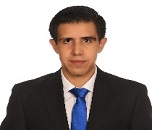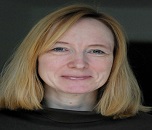Scientific Program
Keynote Session:
Title: New approach for reducing particle trapping voltage in insulator-based dielectrophoretic systems
Biography:
Federico is a Biotechnology Engineer from Mexico. He’s an active member of the European Low Gravity Research Association (ELGRA), the Space Generation Advisory Council (SGAC), as well as of the "Space Medicine and Life Sciences Project Group" (which forms part of SGAC). He has participated in hackathons such as the "NASA Space Apps COVID-19 Challenge", the “ActInSpace Hackathon”, the "MIT COVID-19 Buildathon", and the "MIT COVID-19 Challenge" (where his team was named as one of the 3 winners of the Track B). He has participated in various research projects within national and international institutions, which are related to diverse fields of study, including: Parkinson’s disease, both brain and colorectal cancers, biodiesel production, the growth of vegetable species for human consumption in harsh environments and electrokinetic-driven microfluidics.
Abstract:
Title: Connecting Chemistry and Nanotechnology: Ab-Initio Molecular Dynamics Simulations
Biography:
Irmgard Frank studied chemistry at the LMU Munich (1988 – 1993). Already in her diploma work in the group of Christoph Bräuchle she investigated excited states in complex molecular systems theoretically. She went to the University of Bonn where she completed her PhD thesis in the group of Sigrid Peyerimhoff in 1995. It became apparent that, to fulfill the expectations of the experimentalists, a method was needed, that could describe not only the excitation to the excited state, but also the molecular dynamics in an excited state. She became a postdoc in the group of Michele Parrinello at the Max-Planck institute for solid state science in Stuttgart where she developed the restricted-open shell Kohn-Sham method (ROKS) with which it became possible to simulate excited state reactions at a high theoretical level. She went back to Munich and completed her Habilitation in 2004. Her work focused on the simulation of chemical reactions and took mainly two directions: photochemistry and mechanochemistry. In 2008 she was appointed associate professor at the University of Hannover. More recently she developed the idea of Deterministic Quantum Mechanics (DQM). DQM is a simple way out of quantum mechanical paradoxa.



